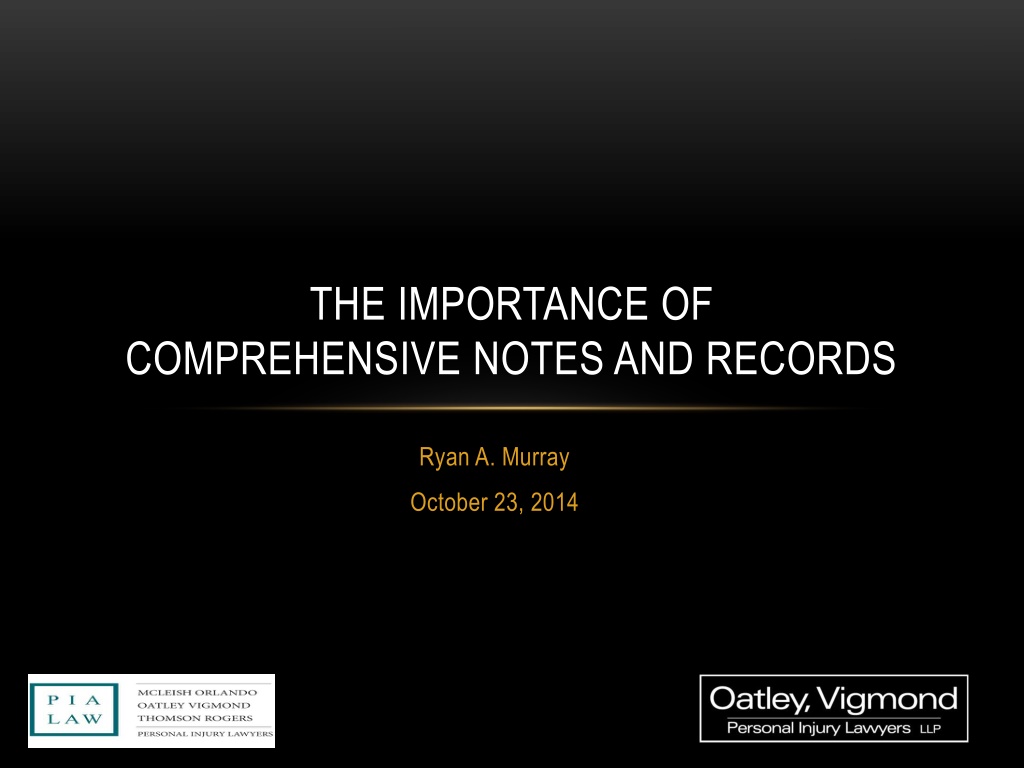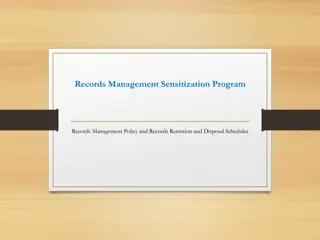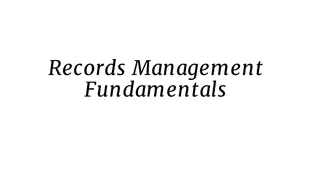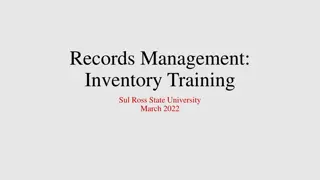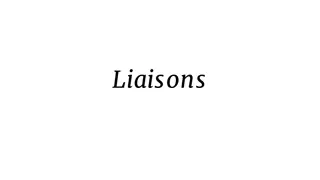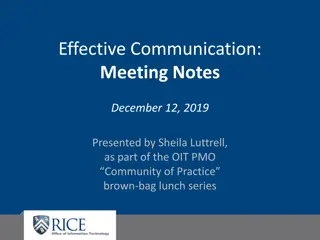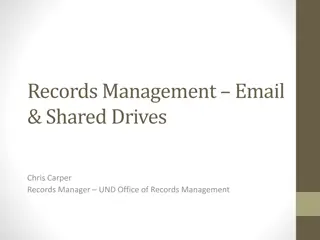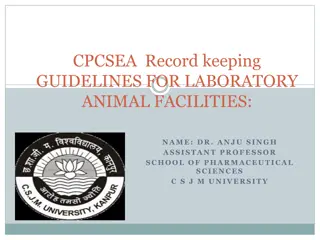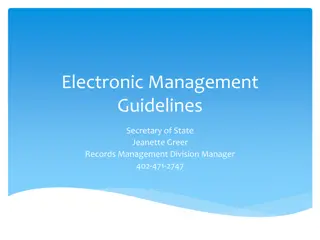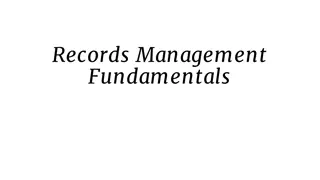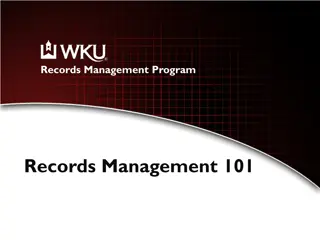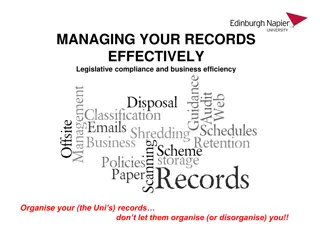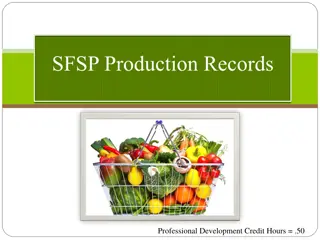Importance of Comprehensive Notes and Records in Health Care
Comprehensive clinical notes and records play a crucial role in tracking patient history, investigating issues, and aiding in personal injury lawsuits. They assist in providing accurate care, making treatment decisions, and avoiding unnecessary court appearances by ensuring complete and legible documentation. Proper records can protect health care professionals from baseless negligence claims and help establish prognosis for patients. Legibility and proper documentation are key in preventing misunderstandings and overlooking important details in legal settings.
Download Presentation

Please find below an Image/Link to download the presentation.
The content on the website is provided AS IS for your information and personal use only. It may not be sold, licensed, or shared on other websites without obtaining consent from the author. Download presentation by click this link. If you encounter any issues during the download, it is possible that the publisher has removed the file from their server.
E N D
Presentation Transcript
THE IMPORTANCE OF COMPREHENSIVE NOTES AND RECORDS Ryan A. Murray October 23, 2014
INTRODUCTION Comprehensive clinical notes and records: track a patient s history; and, investigate any issues or patterns that may impact the patient s future care and recovery. Benefits to health care professionals and patients include: assisting in the success of a personal injury lawsuit; prevent testifying in court; and protects against baseless claims of professional negligence.
RECORDS ASSIST RECOVERY Thorough records assist the treatment team: by providing an accurate record of the patient s condition; paints a rationale for treatment decisions; and vital information needed to provide ongoing adequate and appropriate care by all members of the treatment team.
RECORDS ASSIST A LAWSUIT Clinical notes and records: identify pre-existing issues that may impact a patient s personal injury lawsuit; identify a patient s current and ongoing issues with pain and disability; confirm whether a patient is regularly engaging in rehabilitation; and assist in establishing a prognosis.
RECORDS ASSIST A LAWSUIT CONTD CNR s must meet a few criteria: 1. Legibility and Style of Writing o records must be easily read and understood o when records are not legible, expensive transcription is arranged, adding to a patient s costs in the lawsuit and requires time of the professional to transcribe the records o when records are not easily understood, key issues can be overlooked or ignored by decision makers in the lawsuit 2. Document each patient encounter chronologically and systematically o records provide a complete picture of all the treatment provided to the injured party o records in proper context avoid things being taken out of context by defence lawyers
RECORDS PREVENT UNNECESSARY COURT APPEARENCES The Ontario Evidence Act allows lawyers to file records made in the ordinary course of business, such as clinical notes and records, as exhibits at trial to prove the truth of facts contained within those records Records filed cannot prove clinical diagnosis, opinion or impression Records that are complete and legible may be filed with the court, which may avoid the health care professional s attendance at court to testify A health care professional may be called to testify at court if records are not complete or legible, wasting the time of the health care professional and the court Defence lawyers are more likely to Summons a health care professional to testify about their encounters with an injured party if the records are not easily read and understood
RECORDS PREVENT UNWARRANTED CLAIMS OF PROFESSIONAL NEGLIGENCE Treatment must meet standards of practice; Professional colleges define appropriate record keeping; For certain professions, Ontario legislation dictates time for keeping records; The ultimate limitation period 15 years; prove what was and was not said and done in meetings with a patient; Support inference that you are diligent, informed and prepared.
Questions pertaining to this topic may be directed to Ryan Murray at: rmurray@oatleyvigmond.com or 1 (888) 662-2481 x 346
